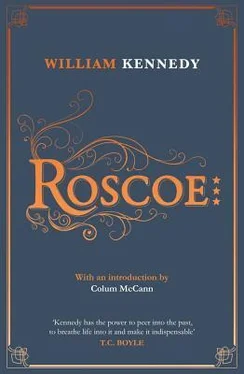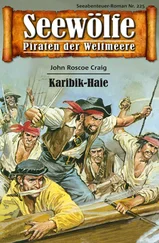“Is there a body that goes with the Sprule autopsy?” Roscoe asked.
“We got a wino out of the river we can use.”
Elisha had obviously gambled that Roscoe, Patsy, and O.B. would find a way to cover up his death. They’d done it for others. Yet it was sloppy; and Roscoe concluded Elisha ran out of time for punctiliousness, sudden death his only pressing issue.
“A whole lot of chloral hydrate,” Roscoe said.
“You’re gonna do it, do it so it gets done,” Mac said.
“You know that, all right.” And Roscoe remembered when Mac, tipped by an informer, went to Union Station to meet a gunman coming to town on a train to either collect a gambling debt from Roscoe or shoot him in the knee. Mac disarmed the visitor, put him in the back of his detective car and shoved a pistol under his rump, explaining that Albany was a city of law and order, shot him through both buttocks, and drove him to see Dr. Johnny (The Butcher) Merola, the designated abortionist for and inspector general of Albany’s prostitutes, to have his wounds treated. Johnny doped up the visitor, and Mac and his partner put him in a Pullman compartment on the train back to Buffalo so he could suffer in private when he woke up. Roscoe, knees still intact, thanks you, Mac.
Roscoe read in the Sprule medical report that Elisha’s heart was twice its normal size. He could’ve dropped dead anytime. Both autopsies were done by Neil Deasey, coroner’s physician, who found whatever Patsy told him to find in any given corpse. So now Veronica and the Party would not be publicly embarrassed, and Elisha’s insurance not jeopardized. As to the real cause of death, that was the Party’s business. Was Elisha’s enlarged heart a true fact or a Neil Deasey fact? Could Elisha have known this about his heart? He could. Blighted kamikaze. Roscoe put the autopsies in his inside coat pocket.
“Mac,” Roscoe said, “you know when every pimp and felon sneezes in this town. You ever hear any threat to Elisha?”
“I hear the troopers are ready to move against the organization, but no word on what or who. Maybe close down our gambling, don’t know. You wanna shut down the city before they do?”
“That’d be a first,” Roscoe said. “Maybe close the horse rooms.”
“Is that a yes? I’ll start making the rounds.”
“Let me talk to Patsy.”
“Right. You take Gladys home the other night?”
“Why do you ask?”
“She said you did.”
“Don’t you believe her?”
“I like to make sure she gets home safe,” Mac said.
Roscoe saw O.B. coming at quick time across the lawn to the portico.
“Patsy wants the autopsies,” O.B. said to Mac.
“I’ve got them,” Roscoe said. “I’ll see he gets them.”
“This thing is almost over,” O.B. said. “I’m not going to the cemetery. I’ll ride back with you, Mac.”
“Mac says word’s around about a crackdown, maybe on gambling. You hear that?” Roscoe asked O.B.
“Twice a week, every week.”
“We should take it seriously. Patsy’ll probably want to close the horse rooms. Let ’em do phone business.”
“You don’t think the troopers’ll tap the phones?”
“The bookies take that risk, not us.”
“They’re gonna scream,” O.B. said.
“You ever know a bookie didn’t scream?” Roscoe asked.
O.B. and Mac went down the steps and toward Mac’s car, and Roscoe crossed the lawn to hear the boys’ choir singing “Nearer My God to Thee.” He saw Gladys sitting at the end of a row with, guess who, Trish, also Minnie Hausen, who handled legislative patronage for Patsy, and Hattie Wilson, dear old Hat. Roscoe stood in Gladys’s sight line until she eyed him, then he went to her, took her aside.
“Did you tell Mac I took you home from the mill?”
“No.”
“Why would he say you did?”
“I said you offered to. He keeps tabs on me.”
“Not on my account.”
“It’s everybody.”
Roscoe stood with Patsy for the rest of the hymn singing, wondering whether Gladys or Mac was lying, and why. At hymn’s end the Episcopal dean opened his prayer book, and Roscoe heard the snort of a horse. He turned to see Gilby riding out from the stable, a collie and a German shepherd at the heels of Jazz Baby, the eleven-year-old Thoroughbred gelding that had held such promise for Elisha as a racehorse until he turned into a bleeder, going too fast too young, and Elisha brought him back, but as a riding horse, and gave him to Gilby for his tenth birthday. Gilby, his black coat and tie both gone, his sleeves rolled, at home in the saddle, rode Jazz Baby slowly toward the wake and stopped at the outer edge of the crowd.
“My father didn’t say goodbye to Jazz Baby,” Gilby said. He ducked his head, moved the horse forward under the canopy. The mourners stepped back to make room.
“Bizarre,” said Gordon Fitzgibbon.
“Not at all,” said Roscoe, and he walked ahead of the horse, slowly, as Gilby positioned Jazz Baby’s head facing Elisha in the coffin.
Veronica was smiling for the first time in three days, and Roscoe, a sap for animals, was near tears. Gilby held the horse for a long look, then said, “Okay, Baby.” He threaded the horse between coffin and mourners and, on the lawn, broke into a canter toward the woods.
Elisha smiled up at Roscoe. “EP thinks that boy is ready ratoo,” he said. “Right on the bibbity bing.”
The Gossip Begins
Six days after the funeral Roscoe walked up the wide, curving path to the Tivoli swimming pool where Veronica said she’d be if he came over before noon. The walkway was sculpted with gray stone that Duke Willard had carted down from the Helderbergs in his wagons when Ariel leveled part of the south meadow to build tennis courts for his wife, Millicent, the mother of Elisha. Roscoe and Elisha played on the courts as boys, but after Ariel caught Millicent naked with her tennis teacher and divorced her, she ceased being mentioned in the family, and tennis as a pastime went to hell. Elisha, in turn, excavated the courts out of existence, building in their place the swimming pool Veronica wanted. Roscoe remembered two suckling pigs rotating on the spit, and the famous oyster roast catered by Jack Rosenstein for Veronica’s pool opening, where Elisha announced that roast oysters were the next-best thing to money.
Roscoe did not think so highly of money, the principal difference, after not having Veronica as a wife, between himself and Elisha. Roscoe made money from the Stanwix brewery he inherited, also from politics; but money was never a reason for him to get out of bed. As to Veronica, a reason for any man to get into bed, there she was, sitting by her pool, all alone with the new totality of her fortune, sleek in her rattan lawn chair, long legs elevated, feet in open-toed straw sandals, only her tanned arms and legs getting the noonday sun. Her straw picture hat shaded her face and neck, and her white sundress shielded the rest, except where it dipped at her breasts and fell away at one thigh. Remember her in that white tank suit at the pool opening? It can still bring Roscoe low, thinking how close he came to having this woman for his own. Now he has another chance; also another chance to be brought low. Elisha stood beside her that day at the pool opening, wearing his dinner jacket over bathing trunks, proclaiming her the Empress of Water. Look at her now, even in grief exuding the poise of a queen, while Roscoe, the serf, trembles with subjection. It’s good he no longer needs her.
Veronica smiled as Roscoe sat in the lawn chair facing her, that smile bidding him welcome, her head tipped at the angle of affection which he read as being for him alone. But think, Roscoe: isn’t that how she welcomes the world?
“You found me,” she said.
Читать дальше












